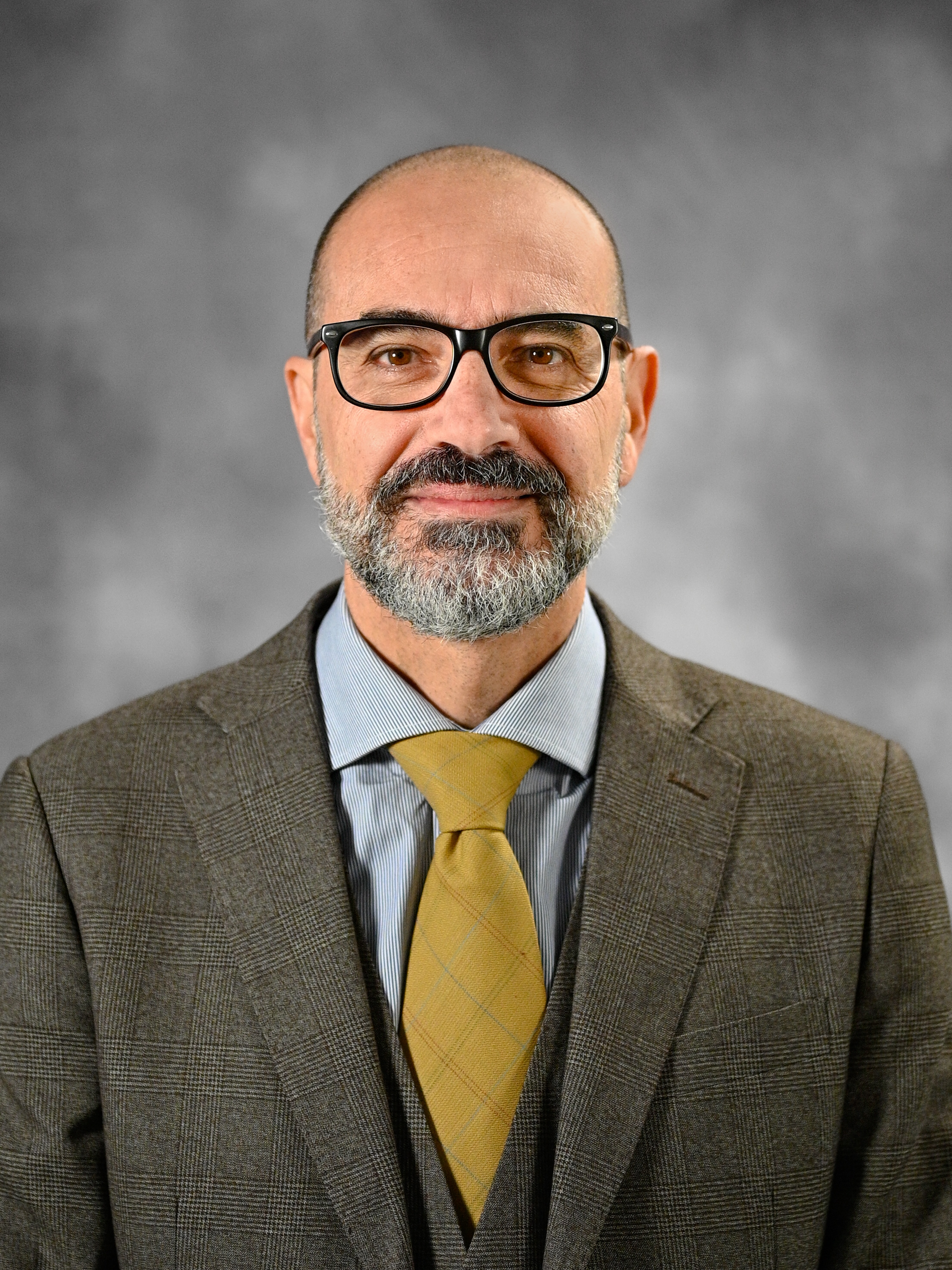ATTIVITA' SCIENTIFICA E INCARICHI
Professore associato di Didattica e Pedagogia Speciale, è responsabile dell'Assicurazione della Qualità per il corso LM50, membro della Commissione Ricerca del Dipartimento di Scienze Umane e della Commissione permanente ICT di Ateneo. Nell'anno accademico 2021-22 ha diretto il VI CICLO del Corso di Specializzazione per il Sostegno Didattico .
Nel 2023 ha ottenuto l'Abilitazione di professore ordinario di prima fascia nel settore scientifico disciplinare 11/D2 - DIDATTICA, PEDAGOGIA SPECIALE E RICERCA EDUCATIVA.
Laurea e Dottorato di Ricerca in "Psicologia" presso l’Università Pontificia Salesiana , Laurea in "Psicologia dello Sviluppo e dell'Educazione", e Master di II Livello in "Fonti, Strumenti e Metodi per la Ricerca Sociale" presso “La Sapienza ” Università di Roma.
Nell’anno accademico 2017/18 è stato Ricercatore in "Pedagogia Sperimentale" presso l’Università degli Studi di Roma “Unitelma Sapienza” , dove ha contribuito al coordinamento del corso di laurea on-line interateneo Unitelma/Sapienza in "Scienze e Tecniche Psicologiche" (Classe L. 24).
Membro di comitati internazionali, società scientifiche nazionali e gruppi di ricerca - DISCO - Conferenza Internazionale , SIPED, CRESPI, CARVET, Comitato Tecnico Scientifico dell’Associazione Proteo Fare e Sapere, collaboratore e referee dell’EERA Network 1 – Professional Learning and Development . Referee delle riviste RicercAzione , Form@re , Frontiers in Psychology . Revisore esterno VQR 2015-19, gruppo GEV 11a.
Dal 2007 al 2015 è stato Ricercatore senior presso l’IPRASE del Trentino e Direttore responsabile e scientifico della rivista "RicercAzione", riconosciuta dall’ANVUR rivista di Classe A nei macro-settori 11/D1 e 11/D2.
Dal 2014 al 2017 ha lavorato presso il Dipartimento di Scienze Umane dell’Università degli Studi di Verona , come docente di "Didattica Generale" nei corsi PAS/TFA e come assegnista nell’ambito di un progetto di ricerca dipartimentale sul tema dei metodi e strumenti di formazione dei docenti .
Nel 2014 è stato ascoltato dalla VII Commissione della Camera dei Deputati nell’ambito dell’Indagine conoscitiva sulle strategie per contrastare la dispersione scolastica . Lo studio presentato in Parlamento, è stato richiesto come keynotes speech dal “IV Colóquio International sobre Educação Profissional e Evasão Escolar”, convegno tenutosi in Brasile nel 2015, presso la Faculdade de Educação dell’Universidade Federal de Minas Gerais di Belo Horizonte . Nel 2022, la SIPED ha attribuito al volume "Valutare per apprendere " (2019, UTET) il Premio Italiano di Pedagogia IX Edizione.
Svolge e coordina attività di ricerca empirica e teorica sui seguenti argomenti: didattica inclusiva, uso dei video per modellare le cognizioni professionali, indicatori di apprendimento professionale, valutazione formativa, eudcabilità delle competenze non-cognitive. Su questi temi, al suo attivo molteplici pubblicazioni. Parallelamente all'impegno accademico ha portato avanti un’intensa attività di consulenza e formazione collaborando con scuole, università, istituti di ricerca, soggetti del terzo settore, case editrici.
Ulteriori dettagli in CV-ITA in area download.
_____________________________________________
SCIENTIFIC WORK AND PROFESSIONAL ROLES
Associate Professor of Teaching Methods and Special Education, responsible for Quality Warranty for the degree course in Design and Management of Education Services, member of Research Commission of Human Science Department and ICT Commission of the university, and director of VI Course for National Qualification in Special Education and Inclusion .
In 2023 he achieved the National Scientific qualification as full professor in the Italian higher education system , for the disciplinary field of 11/D2 - Methodologies of teaching, special education and educational research .
He earned a degree and Ph.D. in Psychology at the Salesian University of Rome, a Degree in Developmental Psychology and Education, and a Master's Degree in Methods, Sources, and Instruments of Social Research at the Sapienza University of Rome .
From 2017 to 2018, he was Researcher in "Experimental Educational Methods" at Unitelma Sapienza University of Rome - the e-learning division of Sapienza University of Rome - and Instructional Designer for the degree course of "Psychological Sciences and Techniques" at Sapienza University of Rome .
From 2014 to 2017, he was Adjunct Professor and Research Fellow in "General Teaching Methods" at the University of Verona .
From 2007 to 2015, he was Senior Researcher at IPRASE of Trento and Editor of RicercAzione, an international six-monthly Journal on Learning Research and Innovation in Education , accredited by NAEUSR (ANVUR) as a scientific publication of Class A .
Member of international committees, scientific associations, and research groups: DISCO - International Conference , SIPED, CRESPI, CARVET , EERA Network 1 – Professional Learning and Development . He serves as referee for the following Journals: RicercAzione , Form@re , Frontiers in Psychology . He serves as external evaluator of the National Agency for The Evaluation of Universities Research Institute (ANVUR), Evaluation of Research Quality 2015-2019 (VQR 2015-19).
In 2014 he was heard by the Italian Parliament as an expert within the inquiry into strategies of struggling early school leaving . The study was requested as keynotes speech by “IV Colóquio International Sobre Educação Profissional e Evasão Escolar”, an international conference held in Brasil in 2015, at the Faculdade de Educação dell’Universidade Federal de Minas Gerais di Belo Horizonte . He was awarded the 2022 Italian Prize of Pedagogy IX Edition by the Italian Society of Pedagogy (SIPED) .
His research interests include inclusive teaching methods, videos for modeling professional cognition, teacher learning indicators, assessments for learning, and socio-emotional learning. He has edited several publications on these topics, including articles, book chapters, conference proceedings, monographs, and editorials. He works with school networks, research institutes, public educational organizations, social work organizations, and editorial companies.
Read more CV-EN in the download area.



